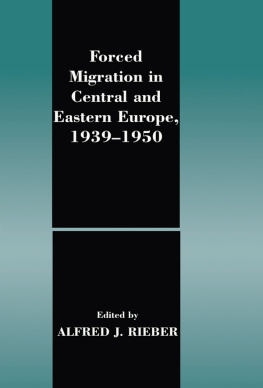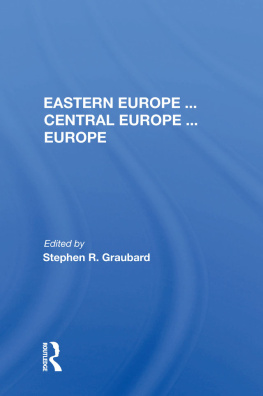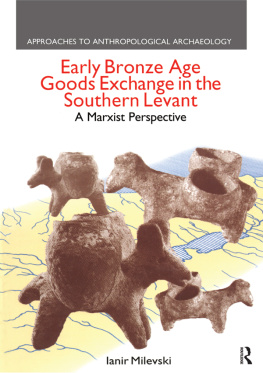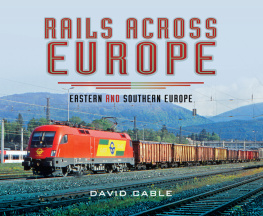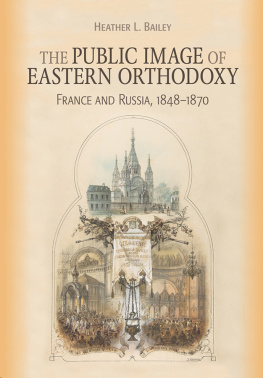
Interurban Knowledge Exchange in Southern and Eastern Europe, 18701950
Around 1900, cities in Southern and Eastern Europe were persistently labeled backward and delayed. Allegedly, they had no alternative but to follow the role model of the metropolises, of London, Paris or Vienna. This edited volume fundamentally questions this assumption. It shows that cities as diverse as Barcelona, Berdyansk, Budapest, Lviv, Milan, Moscow, Prague, Warsaw and Zagreb pursued their own agendas of modernization. In order to solve their pressing problems with respect to urban planning and public health, they searched for best practices abroad. The solutions they gleaned from other cities were eclectic to fit the specific needs of a given urban space and were thus often innovative. This applied urban knowledge was generated through interurban networks and multi-directional exchanges. Yet in the period around 1900, this transnational municipalism often clashed with the forging of urban and national identities, highlighting the tensions between the universal and the local.
This interurban perspective helps to overcome nationalist perspectives in historiography as well as outdated notions of center and periphery. This volume will appeal to scholars from a large number of disciplines, including urban historians, historians of Eastern and Southern Europe, historians of science and medicine, and scholars interested in transnational connections.
Eszter Gantner (19712019) was a research fellow at the Herder Institute for Historical Research on East Central Europe from 2013 through 2019.
Heidi Hein-Kircher is head of the department academic forum at the Herder Institute for Historical Research on East Central Europe in Marburg, Germany.
Oliver Hochadel is a historian of science and a tenured researcher at the Institucin Mil y Fontanals de Investigacin en Humanidades (CSIC, Barcelona).
Routledge Advances in Urban History
Series Editors: Bert De Munck
(Centre for Urban History, University of Antwerp)
Simon Gunn
(Centre for Urban History, University of Leicester)
This series showcases original and exciting new work in urban history. It publishes books that challenge existing assumptions about the history of cities, apply new theoretical frames to the urban past, and open up new avenues of historical enquiry. The scope of the series is global, and it covers all time periods from the ancient to the modern worlds.
3 Urbanizing Nature
Actors and Agency (Dis)Connecting Cities and Nature Since 1500
Edited by Tim Soens, Dieter Schott, Michael Toyka-Seid and Bert De Munck
4 Cities, Railways, Modernities
London, Paris, and the Nineteenth Century
Carlos Lpez Galviz
5 The Materiality of Literary Narratives in Urban History
Edited by Lieven Ameel, Jason Finch, Silja Laine and Richard Dennis
6 The Rise and Fall of Londons Ringways, 19431973
Michael Dnes
7 New Approaches to Governance and Rule in Urban Europe Since 1500
Edited by Simon Gunn and Tom Hulme
8 Migrants and the Making of the Urban-Maritime World
Agency and Mobility in Port Cities, c. 15701940
Edited by Christina Reimann and Martin hman
9 Interurban Knowledge Exchange in Southern and Eastern Europe, 18701950
Edited by Eszter Gantner, Heidi Hein-Kircher and Oliver Hochadel
For more information about this series, please visit: www.routledge.com/Routledge-Advances-in-Urban-History/book-series/RAUH
Interurban Knowledge Exchange in Southern and Eastern Europe, 18701950
Edited by
Eszter Gantner, Heidi Hein-Kircher and Oliver Hochadel
First published 2021
by Routledge
52 Vanderbilt Avenue, New York, NY 10017
and by Routledge
2 Park Square, Milton Park, Abingdon, Oxon, OX14 4RN
Routledge is an imprint of the Taylor & Francis Group, an informa business
2021 Taylor & Francis
The right of Eszter Gantner, Heidi Hein-Kircher and Oliver Hochadel to be identified as the authors of the editorial material, and of the authors for their individual chapters, has been asserted in accordance with sections 77 and 78 of the Copyright, Designs and Patents Act 1988.
All rights reserved. No part of this book may be reprinted or reproduced or utilised in any form or by any electronic, mechanical, or other means, now known or hereafter invented, including photocopying and recording, or in any information storage or retrieval system, without permission in writing from the publishers.
Trademark notice: Product or corporate names may be trademarks or registered trademarks, and are used only for identification and explanation without intent to infringe.
Library of Congress Cataloging-in-Publication Data
Names: Gantner, Eszter B. honoree. | Gantner, Eszter B., editor. | Hein-Kircher, Heidi, 1969 editor. | Hochadel, Oliver, 1968 editor.
Title: Interurban knowledge exchange in Southern and Eastern Europe, 18701950 / edited by Eszter Gantner, Heidi Hein-Kircher and Oliver Hochadel.
Description: 1st Edition. | New York : Routledge Taylor & Francis Group, 2020. | Series: Routledge advances in urban history ; vol 9 | Includes bibliographical references and index.
Identifiers: LCCN 2020025820 (print) | LCCN 2020025821 (ebook) | ISBN 9780367333294 (hardback) | ISBN 9780429319235 (ebook) | ISBN 9781000207637 (adobe pdf) | ISBN 9781000207644 (mobi) | ISBN 9781000207651 (epub)
Subjects: LCSH: Cities and townsEurope, SouthernEffect of technological innovations on. | Cities and townsEurope, EasternEffect of technological innovations on. | City planningEurope, SouthernHistory. | City planningEurope, EasternHistory. | Cities and townsGrowth. | Civilization, Modern.
Classification: LCC HC244.5 .I58 2020 (print) | LCC HC244.5 (ebook) | DDC 307.1/1609409041dc23
LC record available at https://lccn.loc.gov/2020025820
LC ebook record available at https://lccn.loc.gov/2020025821
ISBN: 978-0-367-33329-4 (hbk)
ISBN: 978-0-429-31923-5 (ebk)
Typeset in Sabon
by Apex CoVantage, LLC
In memoriam
Eszter Gantner (19712019)
Contents
ESZTER GANTNER, HEIDI HEIN-KIRCHER AND OLIVER HOCHADEL
PART I
Building a Modern City: Networks in Urban Planning
CATHLEEN M. GIUSTINO
IGOR LYMAN AND VICTORIA KONSTANTINOVA
ESZTER GANTNER
TAMARA BJAI KLARIN
PART II
Aiming at the Healthy City: Experiments With Best Practices
ANNA MAZANIK
HEIDI HEIN-KIRCHER
CELIA MIRALLES BUIL
PART III
The New Urban Space: Experiences and Institutions
CLARA MADDALENA FRYSZTACKA
OLIVER HOCHADEL
LUCILA MALLART
BARRY L. STIEFEL
ELENA CANADELLI
COR WAGENAAR
Guide
This book is dedicated to the memory of our esteemed colleague and dear friend Eszter Gantner. She passed away in August 2019 as the manuscript for this book neared completion. In fact, her last e-mail reached us a few days before her death, resolving some final details concerning the images and captions for her chapter. The idea for this book owes very much to Eszters vision of how to invigorate urban history and Eastern European history with new ideas and interdisciplinary alliances. Thanks to her initiative, two historians of Eastern Central Europe and one historian of science from Barcelona formed a team. We were interested in urban history from different but complementary viewpoints. What brought us together was the periphery perspective and what might connect urban spaces in Eastern and Southern Europe.




